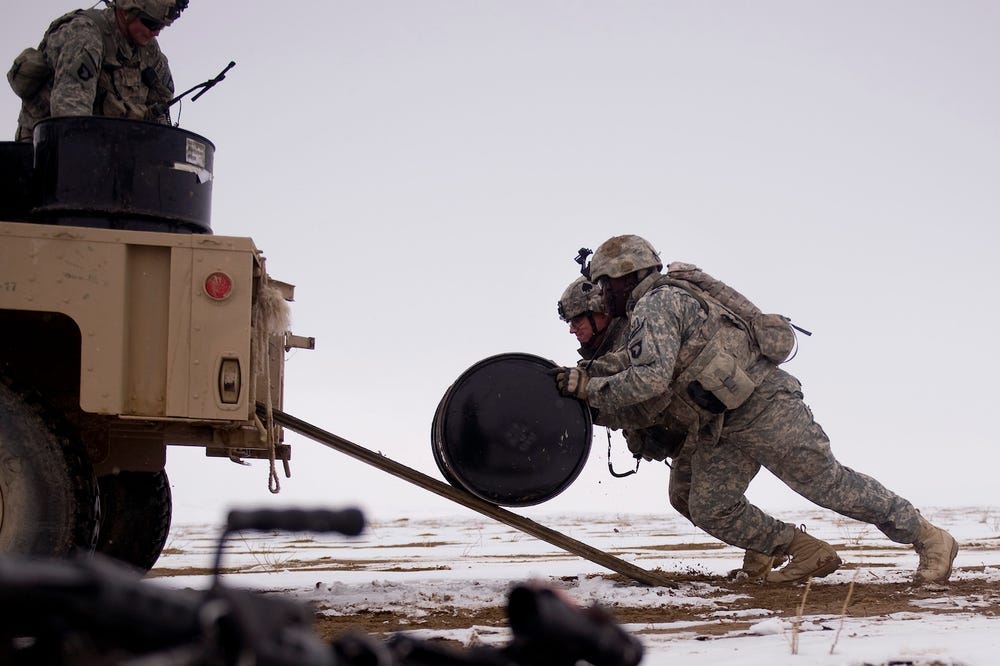David Brown

While we're assigning blame for the debacle in Afghanistan, let's not fault Joe Biden's failure to listen to the folks in the Pentagon who insisted that for a mere pittance in American aid compared to former years, the Afghan Army could hold off Taliban forces forever.
Let's resist the temptation to heap more than his fair share of scorn on ex-President Ghani and the other Afghan warlords who blew a 20-year opportunity to build a modern, secular nation.
Let's give the Afghan National Army a pass for not disintegrating until its soldiers realized they no longer had air support or operational intelligence nor could they count on resupply of food, fuel, and ammunition.
We shouldn't blame Saddam Hussein for bragging about a fictional nuclear weapons program, the bluff that arguably diverted the Pentagon's attention away from 'winning' in Afghanistan.
Let's not chide American taxpayers for getting huffy when they learned that Washington had already spent circa $2 trillion on its Afghan adventure.
It's only fair to assign some blame to Barack Obama, who could have declared victory and left after Osama bin Laden was terminated by a Special Forces SWAT team.
Donald Trump promised he'd end America's war in Afghanistan but straining for a second term as President, pocketed only a Taliban agreement not to interfere with a US withdrawal circa May 2021.
Pakistan played a double game for years, allowing al Qaeda and Taliban sanctuary on its side of the border with Afghanistan and colluding in cross-border supply.
Perhaps as students of bureaucracy, we can understand why US generals and their counterparts at State and the CIA, folks who'd invested their careers in 'winning' in Afghanistan, couldn't bear to give Biden the coherent exit scenario he'd ordered.
The President deserved to have had a workable disengagement plan, one that inter alia sheltered Afghans who'd shared our vision. He'd promised it to voters. By May this year, some of Biden's credibility as the not Donald Trump rested on delivering on his very public decision to extract US forces from Afghanistan by September 11.
It will be argued as long as the American republic survives whether Biden's withdrawal deadline was correct, but as president, Biden reasonably expected that his Pentagon would serve him up a workable Plan B, which it didn’t.
All these factors are relevant to the Afghan government's collapse last week, but all they really reveal is that when bureaucracies are handed big missions, those missions can become an end in themselves, accreting hopeful histories and moral obligations as they move along.
Compared to the debacle in Afghanistan this summer, the American exit from Vietnam in the spring of 1975 now looks to have been a model of rational planning and execution. In fact, it was only marginally more coherent, but unlike the events of last week and this, it was executed about as well as circumstances allowed.
For a couple of decades after 1975, State, CIA, and the Pentagon were populated with middle and senior level officers who had learned in South Vietnam just how fraught a thing it is to intervene in a civil war and, in pursuit of a happy outcome, to provide not only security but also ensure decent, honest government services to a weary and skeptical citizenry.
Come 2001, al Qaeda's timing was perfect. The Vietnam hands had been retired. Hardly anyone then serving in the US government had first-hand experience of America's first 'forever war.' And so, having failed to learn the lessons of the past, America's foreign policy community allowed a pack of so-called neo-conservatives, experts championed by the vice president, Dick Cheney, to con President George W. Bush and others of his cohort into counter-jihads, first in Afghanistan and shortly afterward and for even less reason, Iraq.
Taking on the Taliban in Afghanistan was intuitively a dumb move. Like the Vietnamese, the Afghans are famously hostile to invaders. The CIA helped the Taliban bring down the USSR's Afghan proteges and might have warned Bush fils against America's getting entangled there. In the event, the US not only waded into the Afghan morass, it also invaded Iraq, premised on a lie: the existence of nuclear bombs that Saddam Hussein was never even close to the building.
Once committed, neither in Afghanistan nor in Iraq were the US and its NATO allies able to work out a winning strategy. Expensive stalemates followed, yes, but not the transformative interventions promised by the neocons or by the folks who, to save South Vietnam from Communism, had whispered in Jack and Bobby Kennedy's ears 40 years earlier.
For the US, 'Afganistan' is a collective failure, and in many respects an institutional one. The last chapter hasn't yet been written, so when Americans assign blame, as they must, they should do it provisionally. Its citizens would be well advised to eschew witch hunts and instead think hard about what sort of interventions or alliances really make the world a safer place for the United States and its friends.
No comments:
Post a Comment